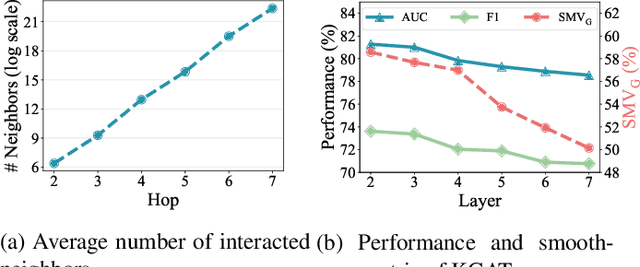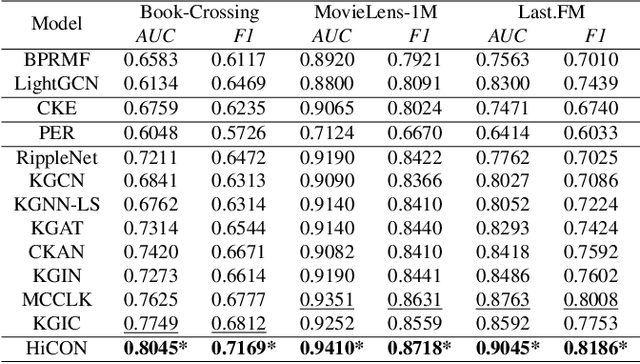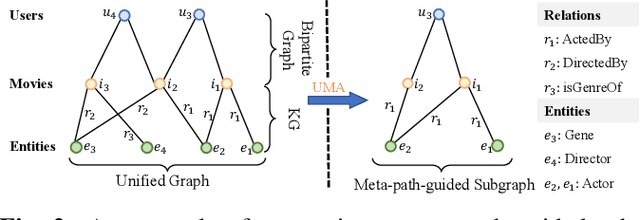Bingchao Wu
Hierarchical and Contrastive Representation Learning for Knowledge-aware Recommendation
Apr 15, 2023



Abstract:Incorporating knowledge graph into recommendation is an effective way to alleviate data sparsity. Most existing knowledge-aware methods usually perform recursive embedding propagation by enumerating graph neighbors. However, the number of nodes' neighbors grows exponentially as the hop number increases, forcing the nodes to be aware of vast neighbors under this recursive propagation for distilling the high-order semantic relatedness. This may induce more harmful noise than useful information into recommendation, leading the learned node representations to be indistinguishable from each other, that is, the well-known over-smoothing issue. To relieve this issue, we propose a Hierarchical and CONtrastive representation learning framework for knowledge-aware recommendation named HiCON. Specifically, for avoiding the exponential expansion of neighbors, we propose a hierarchical message aggregation mechanism to interact separately with low-order neighbors and meta-path-constrained high-order neighbors. Moreover, we also perform cross-order contrastive learning to enforce the representations to be more discriminative. Extensive experiments on three datasets show the remarkable superiority of HiCON over state-of-the-art approaches.
When Neural Model Meets NL2Code: A Survey
Dec 19, 2022Abstract:Given a natural language that describes the user's demands, the NL2Code task aims to generate code that addresses the demands. This is a critical but challenging task that mirrors the capabilities of AI-powered programming. The NL2Code task is inherently versatile, diverse and complex. For example, a demand can be described in different languages, in different formats, and at different levels of granularity. This inspired us to do this survey for NL2Code. In this survey, we focus on how does neural network (NN) solves NL2Code. We first propose a comprehensive framework, which is able to cover all studies in this field. Then, we in-depth parse the existing studies into this framework. We create an online website to record the parsing results, which tracks existing and recent NL2Code progress. In addition, we summarize the current challenges of NL2Code as well as its future directions. We hope that this survey can foster the evolution of this field.
 Add to Chrome
Add to Chrome Add to Firefox
Add to Firefox Add to Edge
Add to Edge